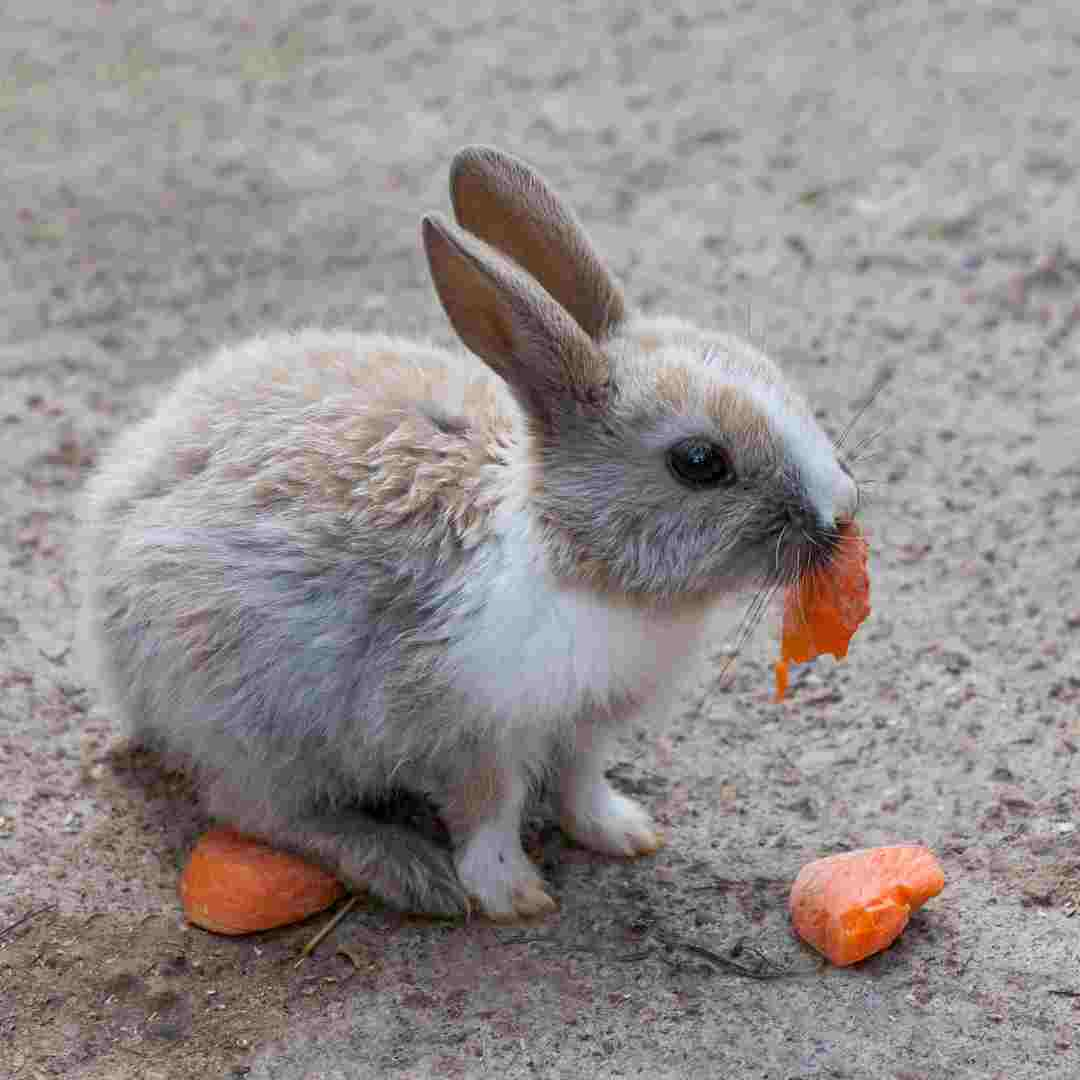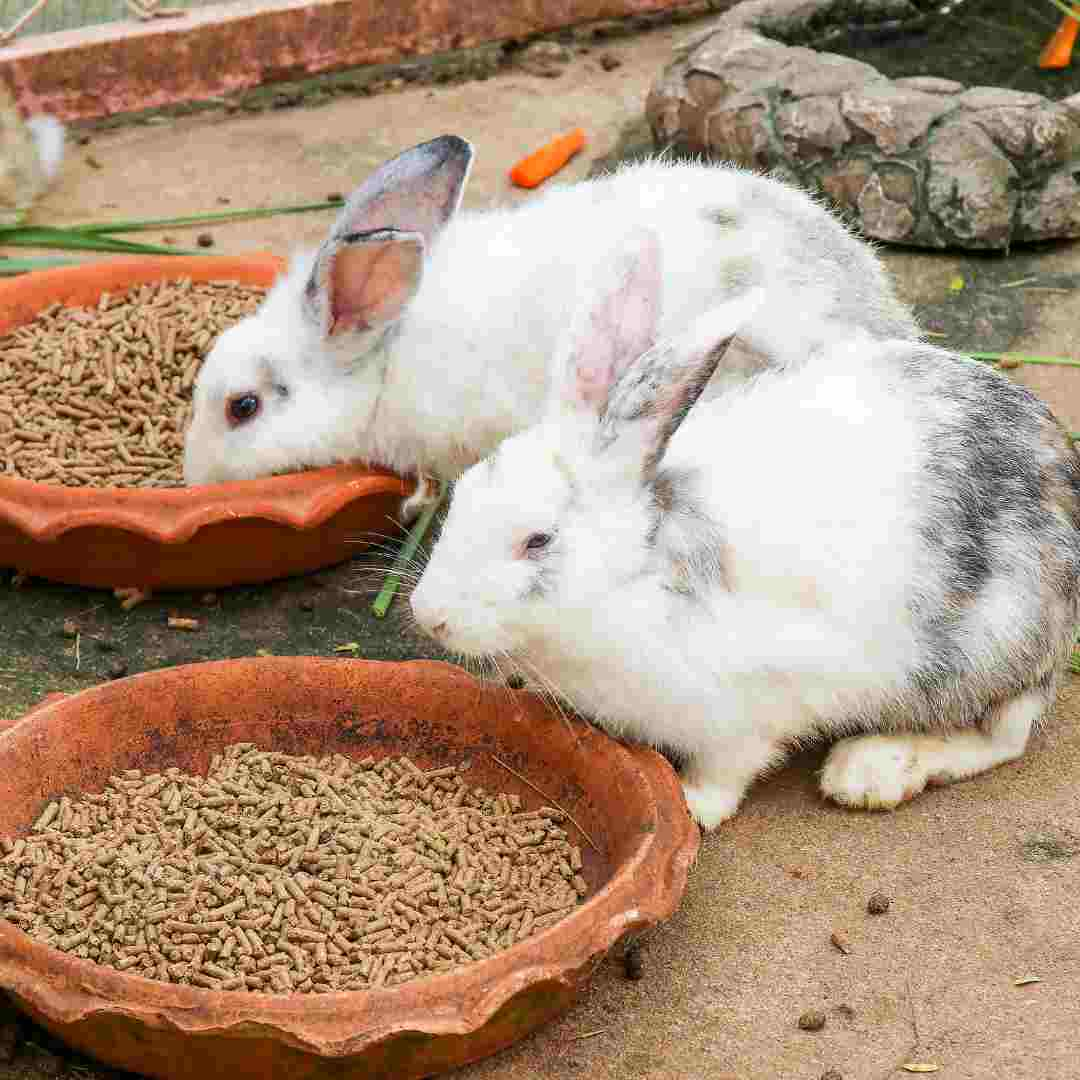Rabbit Diet Nutritional Benefits
Herbivorous rabbits have large ears, fluffy tails, and playful attitudes. Rabbits are smart and need a balanced diet, despite their cuteness. We'll discuss rabbit food nutrition and how it can keep your pet healthy and happy in this article.
Rabbits exclusively consume plants. Hay, fresh veggies, and a few pellets are their food. Rabbits need hay for fiber and intestinal wellness. Overfeeding fresh vegetables might create intestinal difficulties. Pellets are heavy in calories and can cause obesity, so use them carefully.
Rabbits need plenty of water. Water hydrates and flushes pollutants. To keep your rabbit healthy, provide clean water daily.
Rabbit diets provide several nutrients. Hay's fiber helps them avoid constipation. Vitamins and minerals from fresh veggies boost their immune system. Pellets contain proteins and fats for healthy skin and coats. Finally, pure water hydrates and flushes pollutants.
In conclusion, rabbits should eat hay, fresh vegetables, little pellets, and lots of water. This balanced diet gives your pet critical nutrition. A balanced diet can help your rabbit live a long, happy life.
Rabbit-Friendly Produce
Rabbits eat plants to be healthy. Rabbits need vitamins, minerals, and fiber from vegetables and fruits. Choose healthy, nutritious veggies and fruits for your rabbit.
Kale, collards, and spinach are the greatest rabbit foods. These vegetables provide calcium, iron, and vitamins A, C, and K. Carrots, bell peppers, broccoli, and cauliflower are also healthful. Fiber and vitamins in these vegetables help your rabbit's digestive tract.
Rabbits can eat fruits in moderation. Sugary fruits can cause obesity and other health issues. Rabbits love apples, pears, strawberries, and blueberries. These fruits are vitamin- and fiber-rich.
Introduce new vegetables and fruits to your rabbit slowly. Start small and build up. This helps your rabbit acclimate to new diets and prevents intestinal distress.
Remember that rabbits should not eat confectionery or prepared snacks. These foods can harm rabbits.
You can keep your rabbit healthy and happy by feeding them safe and nutritious veggies and fruits.
Understanding Rabbits' Hay Diets
Diet affects rabbit health. For optimal rabbit nutrition, you must grasp hay's purpose.
Fiber-rich hay is low in calories. Roughage keeps rabbits' digestive systems healthy. Hay wears rabbit teeth, which develop constantly. Rabbits' teeth can overgrow without hay, causing major health issues.
Hay provides vitamins and minerals too. Its calcium content strengthens rabbit bones and teeth. Vitamin A helps rabbits' eyes and skin.
Hay feeds and entertains rabbits. Hay keeps rabbits entertained and prevents boredom.
Choose high-quality rabbit hay. Find green, fresh-smelling hay without mold or dust. Yellow or brown hay may be old and less nutritious.
Rabbits need hay. It feeds, cleans, and entertains rabbits. Choose fresh-smelling, green rabbit hay. Understanding hay's importance in a rabbit's diet can help you feed your rabbit properly.
Rabbit Pellet Pros and Cons
Before feeding your rabbit pellets, consider the advantages and downsides.
Pros
Pellets provide balanced nutrition for rabbits. Rabbit pellets contain vitamins and minerals. Fiber helps rabbits digest. For busy rabbit owners, pellets are convenient and easy to store.
Cons
Rabbit pellets are high in calories. Without adequate activity, rabbits can become overweight and sick. Pellets can be pricey, and rabbits may prefer fresh produce.
In conclusion, feeding rabbits pellets can be practical and nutritionally balanced, but it's vital to weigh the pros and negatives.

Fresh Herbs and Greens Benefit Rabbits
Herbivorous rabbits eat fresh herbs and greens. Fresh herbs and greens for your rabbit might improve their health.
Fresh herbs and greens provide vitamins and minerals. Calcium, iron, magnesium, and vitamins A, C, and K. These vitamins and minerals keep rabbits healthy and avoid deficits.
Fresh herbs and greens provide fiber. Fiber aids rabbit digestion. Fiber prevents tooth expansion and wears down teeth.
Third, antioxidant-rich fresh herbs and greens. Antioxidants prevent free radicals from damaging cells and causing disease. Antioxidants diminish inflammation, lowering illness risk.
Finally, fresh herbs and greens are flavorful. Fresh herbs and greens keep rabbits interested in their food.
Finally, feeding your rabbit fresh herbs and greens might improve their health. They contain vitamins, minerals, dietary fiber, antioxidants, and a natural flavor, keeping your rabbit healthy and happy.
